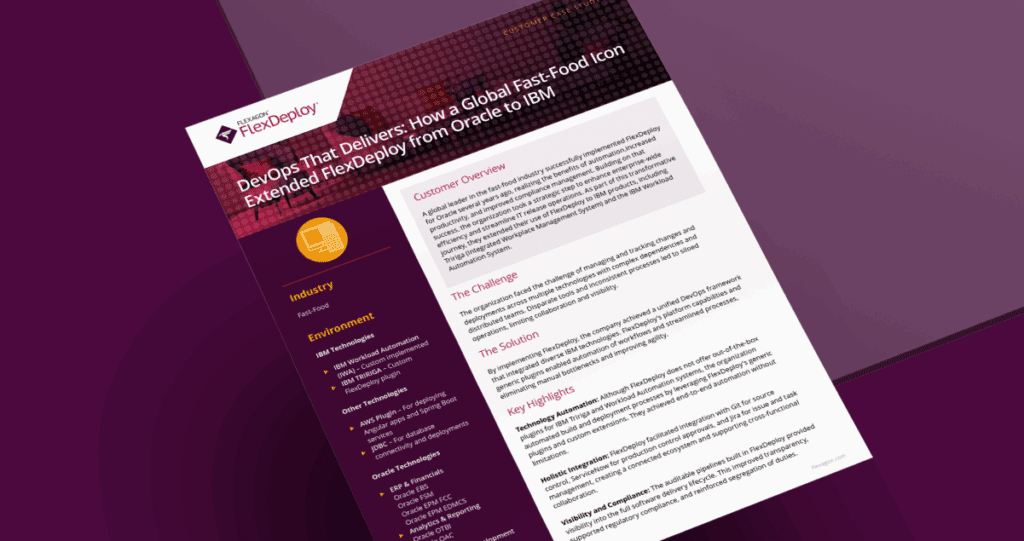Migrating Oracle database objects can be a frustrating process. Often, Oracle database changes are highly manual and inefficient, making it difficult to deliver changes to stakeholders when they need them.
It’s no surprise, then, that DevOps for the database is picking up pace. Fifty-one percent of respondents in a 2018 survey expect to move to fully automated processes for deploying database changes in the next 12 months.¹
Many times, it’s DevOps tools that step in to facilitate automation and solve database migration challenges. Here are three of the most pressing challenges for IT teams working with Oracle databases and how DevOps tools solve them.
Challenge #1: Preserving Data During Migrations
Oracle migrations are at a high risk for data loss when it comes to replacing database structures. Unlike deploying updates to code, changing database objects in Oracle doesn’t automatically preserve the data within them.
One example of this is data in tables. Updating one column with a new data type or recreating the table can wipe out all the data within it. At best, data will need to be manually re-created or restored from a backup, increasing the time, cost, and frustration when dealing with migrations. At worst, you’ll lose critical business information.
How DevOps Tools Preserve Data
DevOps tools help safeguard your data and improve migration processes in Oracle databases by creating a baseline view of your database before any changes are made. Your baseline will include all the database structures for the schema, making it easy to recover data or even revert to a previous version to recover information.
Challenge #2: Manual, Error-Prone Processes
Migrating database objects can be a manual process that has a high likelihood of errors. Before deployment, new objects in Oracle databases must be manually compared to current structures before changes are made to determine what needs to be updated and what information needs to be preserved. From there, changes and deployments must be done manually.
By depending on manual inputs, the process is more likely to result in errors that cause data loss or quality concerns. There’s also a lack of visibility into what changes have been completed, by whom, and when.
How DevOps Tools Improve Processes
DevOps tools include features and functionality that reduce manual processes. For instance, the best DevOps tools can identify differences between environments and compare baselines to synchronize environments. Those tools directly and immediately affect IT teams, by taking time-consuming manual tasks off their shoulders.
DevOps tools also track deployments to record what was changed in what environments, and by whom to give greater visibility into Oracle database changes.
Challenge #3: Repetitive, Time-Consuming Deployments
Not only are traditional Oracle database migrations time-consuming processes, they are deployed through a series of manual, repeatable steps. Repeating steps manually slows down the project and pushes back delivery dates, something that can have significant consequences in today’s fast-paced business environments when time-to-market is a key component in gaining a competitive advantage.
How DevOps Tools Improve Deployments
DevOps tools provide deployment automation that lets teams automate repeatable processes and schedule deployments in advance. Approval features help ensure every deployment is on target and has been reviewed by the correct groups prior to rollout. By automating deployments, DevOps tools reduce the time and effort needed to complete database migrations.
Get Greater Control Over Your Database Migrations with DevOps Tools
Software delivery has been moving at increasing speed, with database teams largely left behind. DevOps tools help them catch up, directly addressing common challenges with Oracle databases via deployment automation, rollback features, and other capabilities that improve the quality and visibility with database-related changes.
Top performing organizations using DevOps can see a significant improvement in results, releasing changes up to 46 times more frequently, with change failure rates that are seven times lower.²
And since 76 percent of developers work with both databases and applications,² its important for DevOps tools to be flexible enough to improve processes across both areas. To ensure you choose the best DevOps tools for your database migrations and your applications, read How to Find the Best DevOps Tools for Your Business.
Sources:
¹ https://www.red-gate.com/solutions/database-devops/report-2018
² https://www.cambridgenetwork.co.uk/news/report-reveals-database-is-now-key-to-devops/



